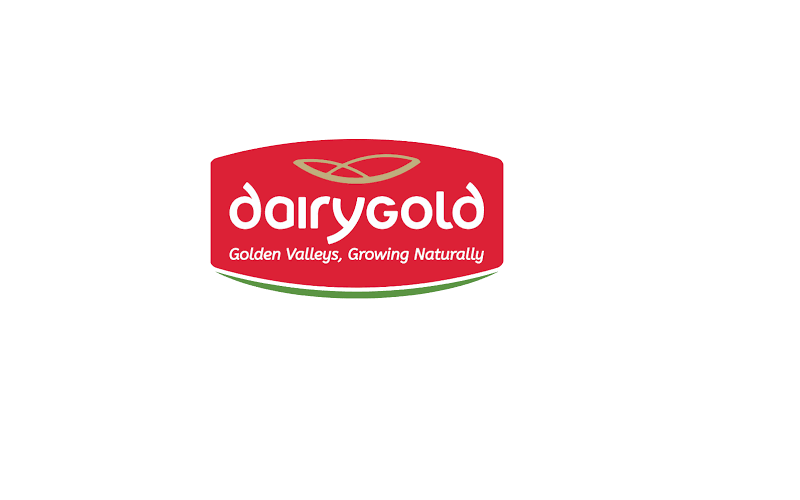Dairygold's 2023 Turnover Dips by €254.7 Million Amidst Industry Challenges
Dairygold, a prominent cooperative based in Cork and owned by 7,000 shareholder members, has disclosed a significant decline in turnover for the fiscal year 2023. The cooperative reported a decrease of €254.7 million in turnover compared to the previous year, marking a notable downturn from €1.6 billion in 2022 to €1.4 billion in 2023.

The dip in turnover was accompanied by a €16.3 million reduction in operating profit, which dropped to €23.9 million for 2023. Michael Harte, Dairygold's interim chief executive, attributed these financial results to a combination of plummeting market returns and the cooperative's strategic decision to prioritize the welfare of its members by reducing profitability.
Harte highlighted the challenges encountered throughout 2023, including diminished milk volumes, adverse weather conditions, and sustainability concerns. Despite these obstacles, Dairygold's milk production experienced a decline, with 1.41 billion liters collected and processed—a decrease of 70 million liters compared to 2022.
The cooperative's average quoted milk price also saw a substantial decrease to 38.4c/L in 2023, reflecting a reduction of 16.5c/L from the previous year. Despite the downturn, Harte described Dairygold's overall performance in 2023 as "satisfactory," noting that all business segments met expectations.
However, Dairygold was not immune to the global slump in demand for dairy products, primarily driven by reduced Chinese demand and decreased consumer spending. Consequently, the cooperative's EBITDA fell by 19.7% to €55 million.
While Dairygold's net bank debt increased to €144.5 million in 2023, the cooperative continued its capital expenditure program, investing €51.1 million in various projects. This included the redevelopment of its Casein facility, ongoing upgrades to milk intake facilities, and strategic acquisitions to diversify earnings.
Despite challenges faced by Dairygold's agri-business, which saw a decline in feed and fertilizer volumes amidst input price volatility, the cooperative's non-core activities experienced growth. Turnover from non-core activities increased by €26.6 million to €39.6 million, primarily driven by share trading activity.
Looking ahead, Dairygold remains committed to environmental sustainability, with plans to reduce carbon emissions across its operations by 42%. The cooperative's Grassroots Milk Supplier Sustainability Bonus Programme incentivizes farmers to undertake sustainable practices, reflecting Dairygold's proactive approach to environmental stewardship.
However, Harte cautioned about significant challenges looming over the dairy sector, including the potential removal of nitrates derogation and the failure to meet emissions targets under the Climate Action Plan. Such developments could have profound implications for Dairygold's suppliers and Ireland's rural economy, underscoring the need for proactive measures and strategic planning within the industry.
Harte highlighted the challenges encountered throughout 2023, including diminished milk volumes, adverse weather conditions, and sustainability concerns. Despite these obstacles, Dairygold's milk production experienced a decline, with 1.41 billion liters collected and processed—a decrease of 70 million liters compared to 2022.
The cooperative's average quoted milk price also saw a substantial decrease to 38.4c/L in 2023, reflecting a reduction of 16.5c/L from the previous year. Despite the downturn, Harte described Dairygold's overall performance in 2023 as "satisfactory," noting that all business segments met expectations.
However, Dairygold was not immune to the global slump in demand for dairy products, primarily driven by reduced Chinese demand and decreased consumer spending. Consequently, the cooperative's EBITDA fell by 19.7% to €55 million.
While Dairygold's net bank debt increased to €144.5 million in 2023, the cooperative continued its capital expenditure program, investing €51.1 million in various projects. This included the redevelopment of its Casein facility, ongoing upgrades to milk intake facilities, and strategic acquisitions to diversify earnings.
Despite challenges faced by Dairygold's agri-business, which saw a decline in feed and fertilizer volumes amidst input price volatility, the cooperative's non-core activities experienced growth. Turnover from non-core activities increased by €26.6 million to €39.6 million, primarily driven by share trading activity.
Looking ahead, Dairygold remains committed to environmental sustainability, with plans to reduce carbon emissions across its operations by 42%. The cooperative's Grassroots Milk Supplier Sustainability Bonus Programme incentivizes farmers to undertake sustainable practices, reflecting Dairygold's proactive approach to environmental stewardship.
However, Harte cautioned about significant challenges looming over the dairy sector, including the potential removal of nitrates derogation and the failure to meet emissions targets under the Climate Action Plan. Such developments could have profound implications for Dairygold's suppliers and Ireland's rural economy, underscoring the need for proactive measures and strategic planning within the industry.
Key News of the Week










